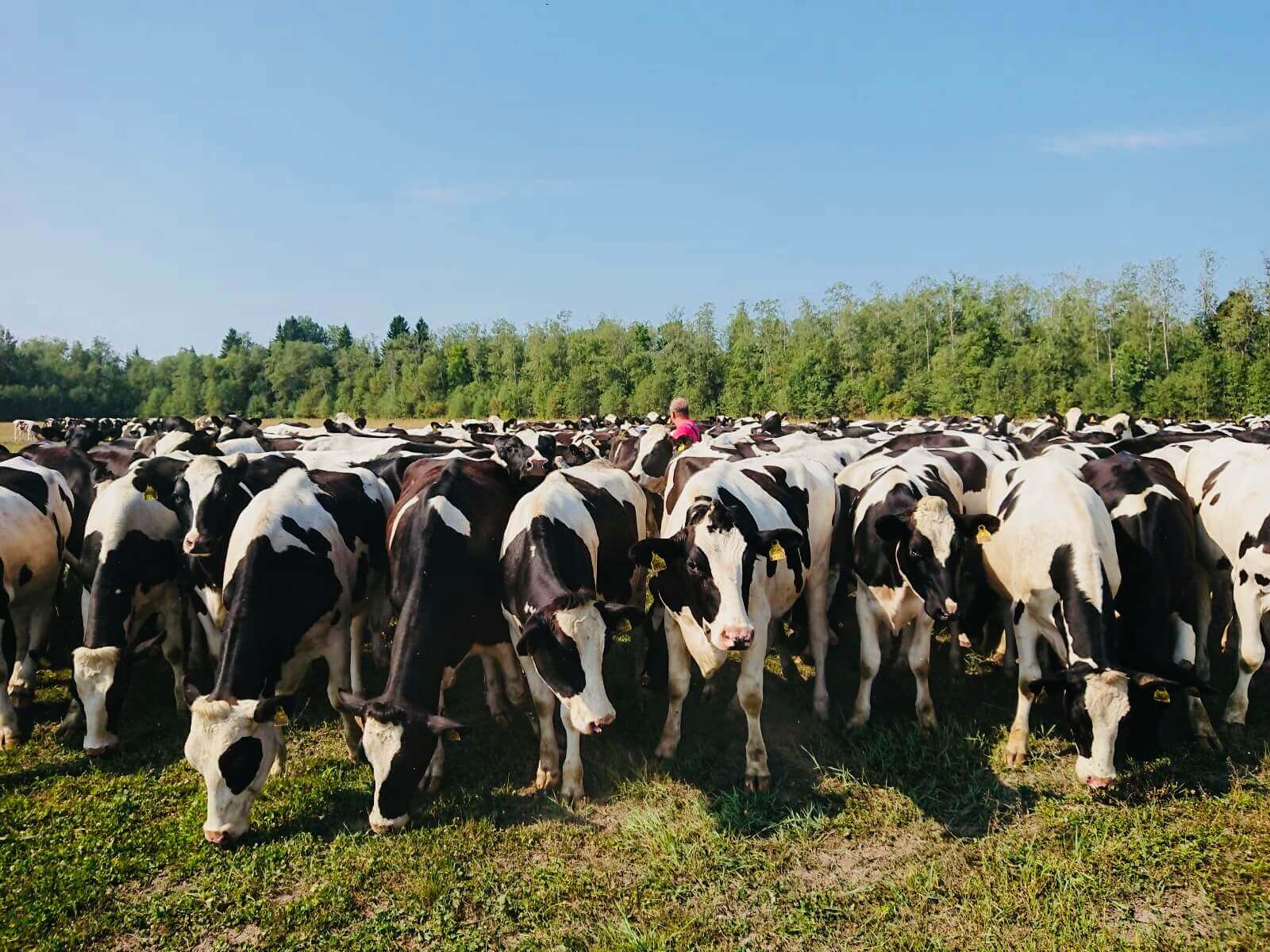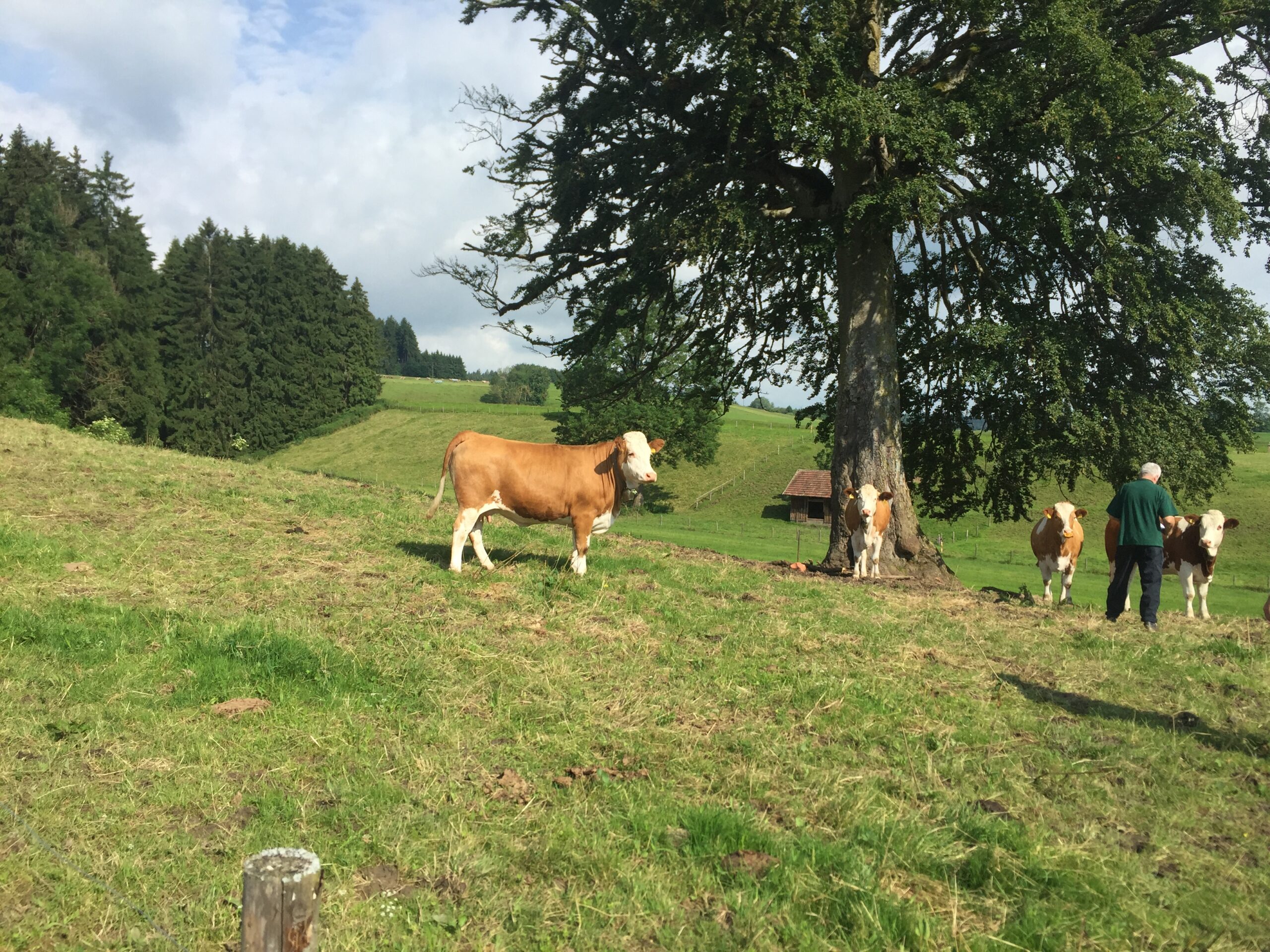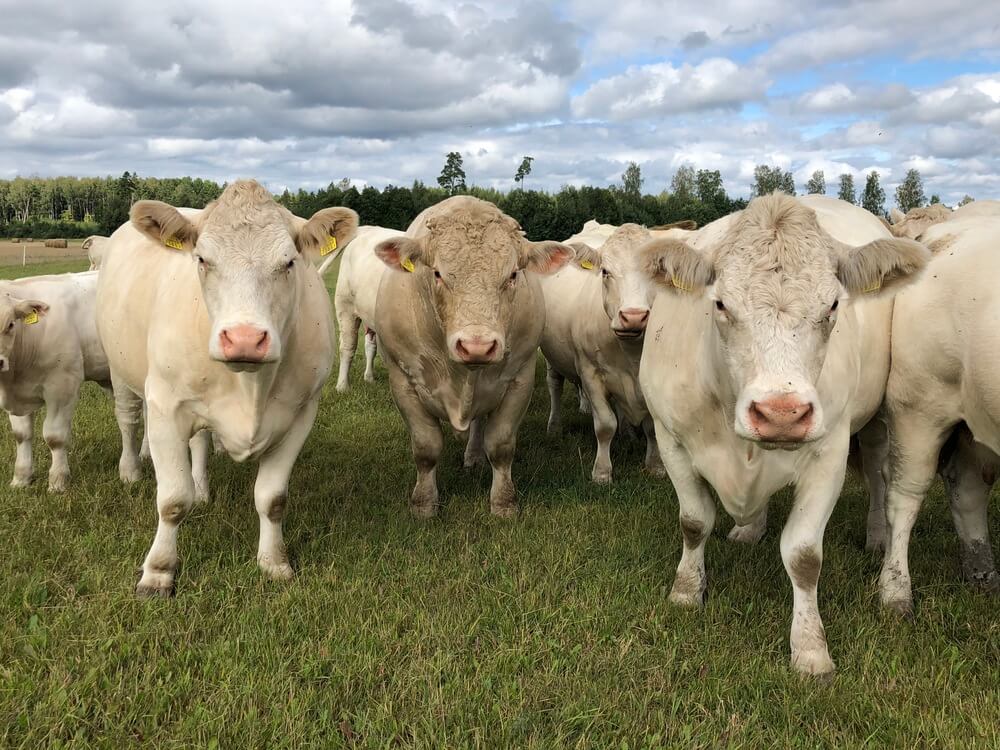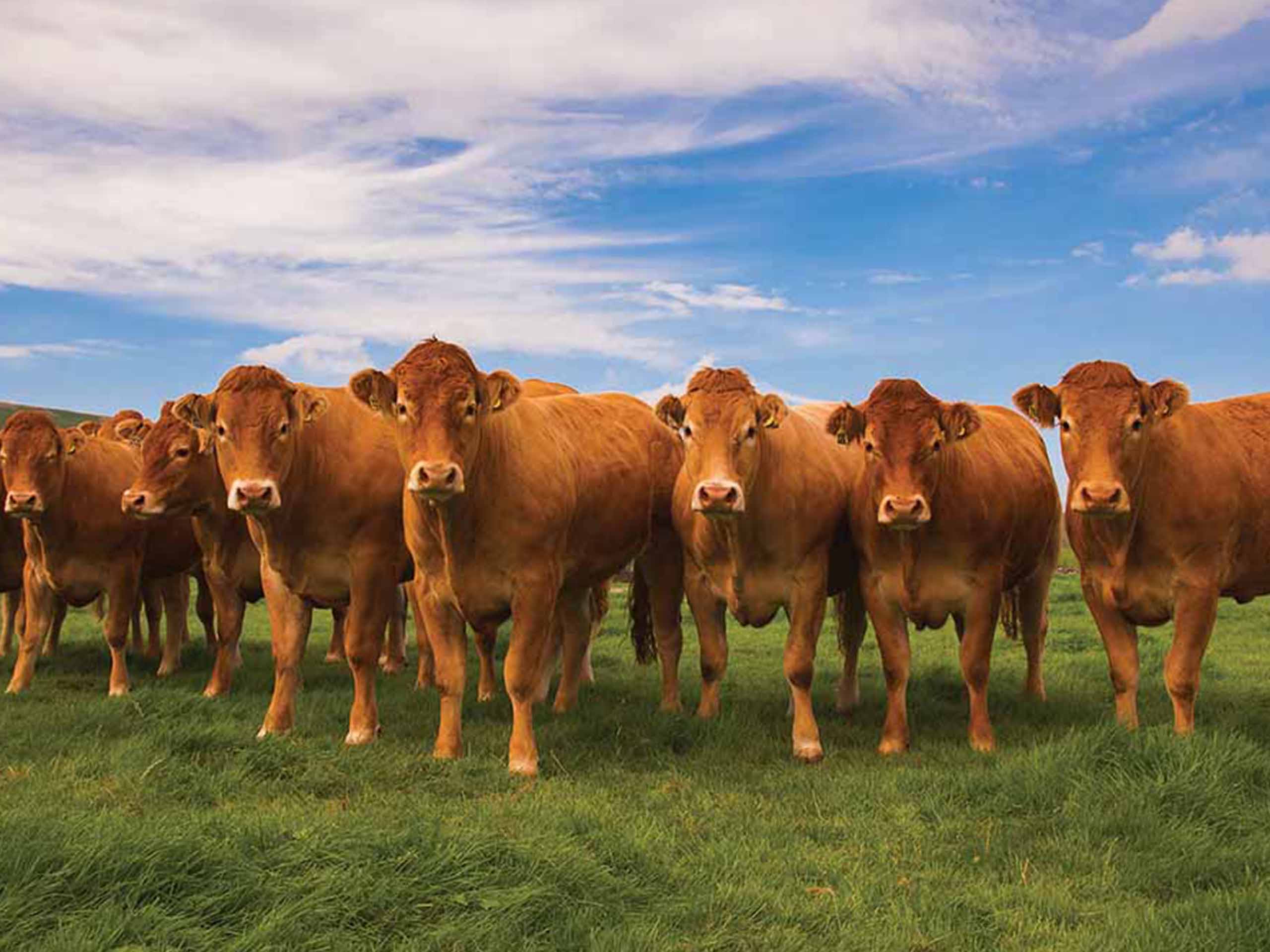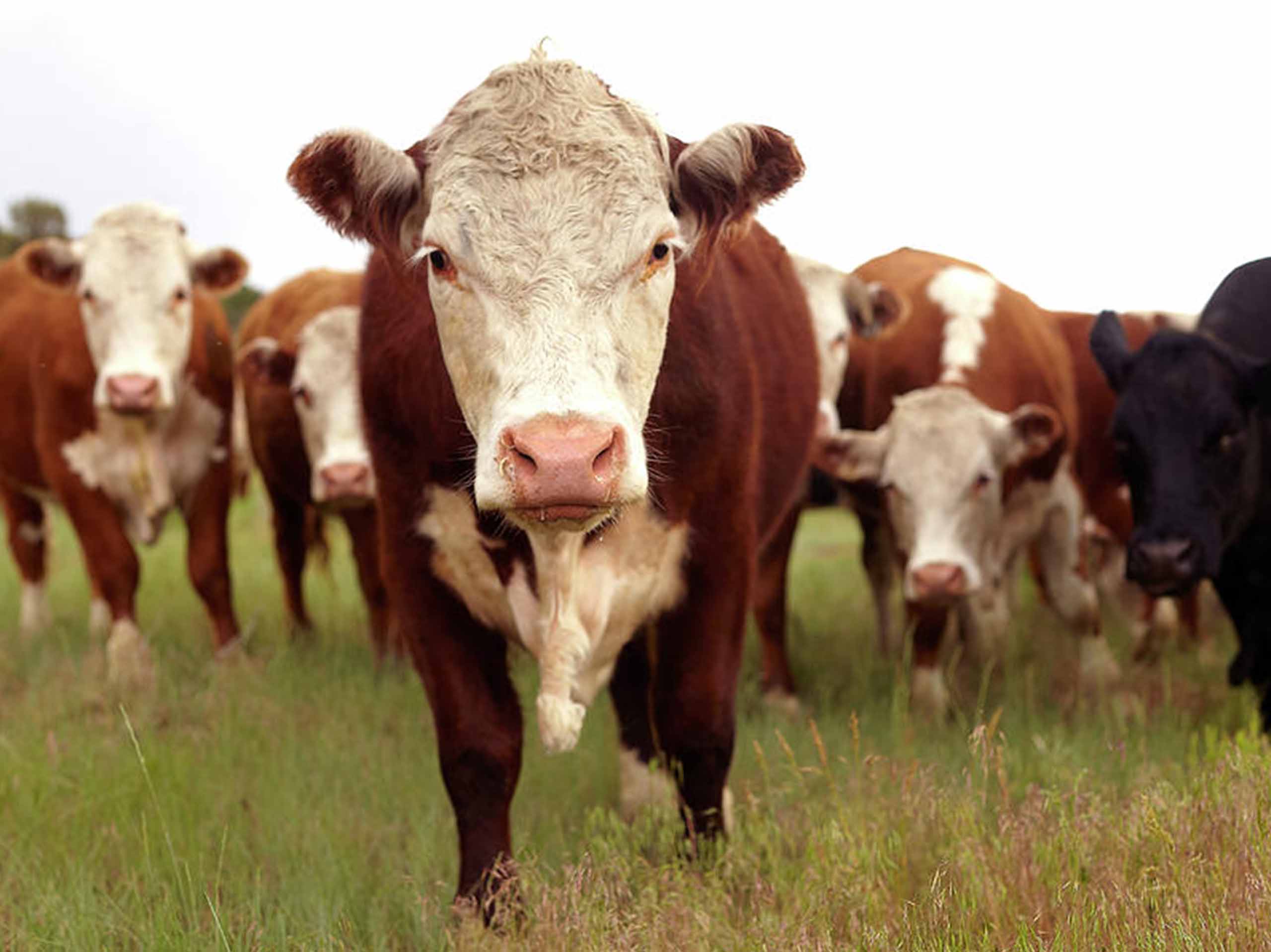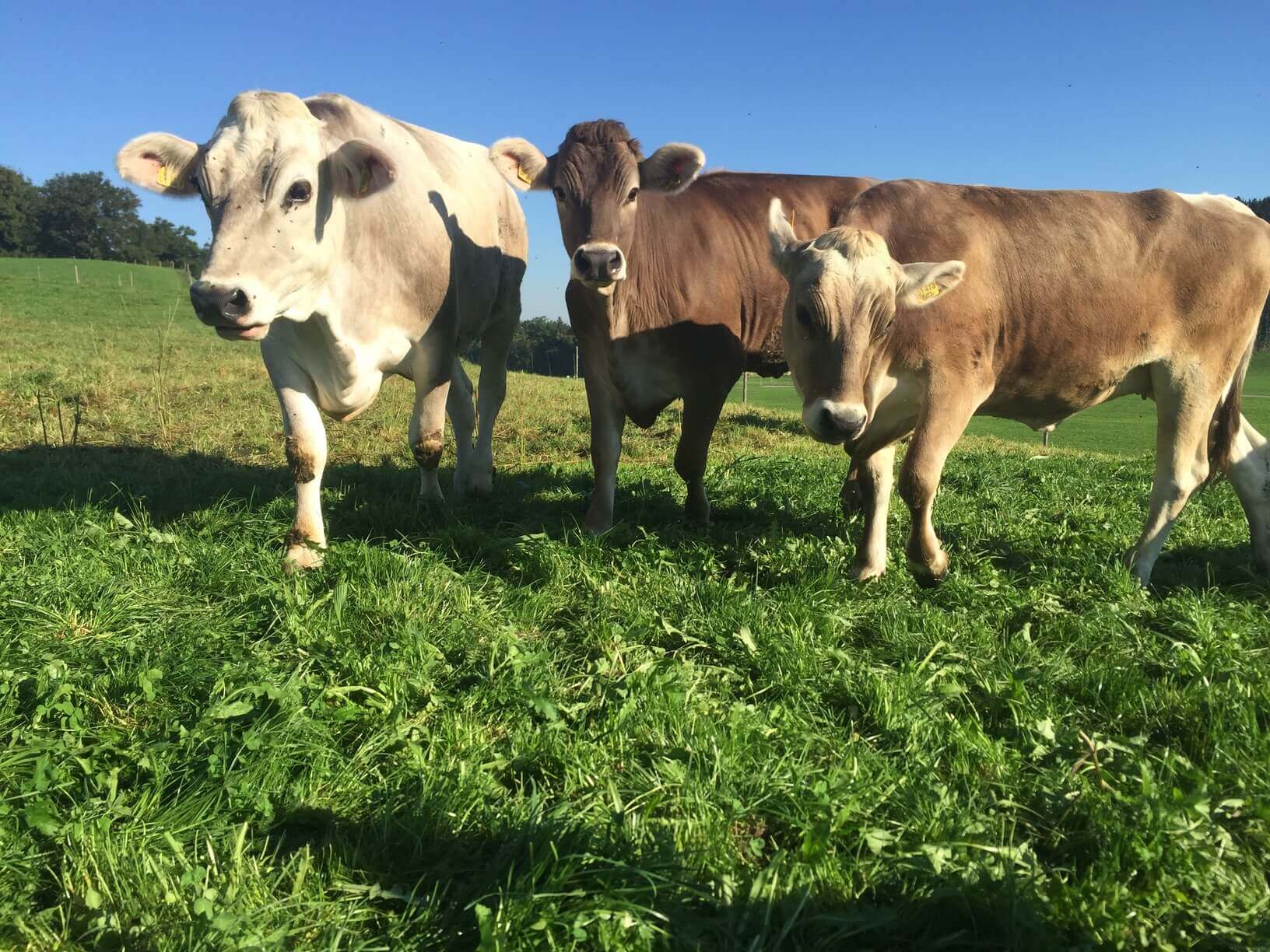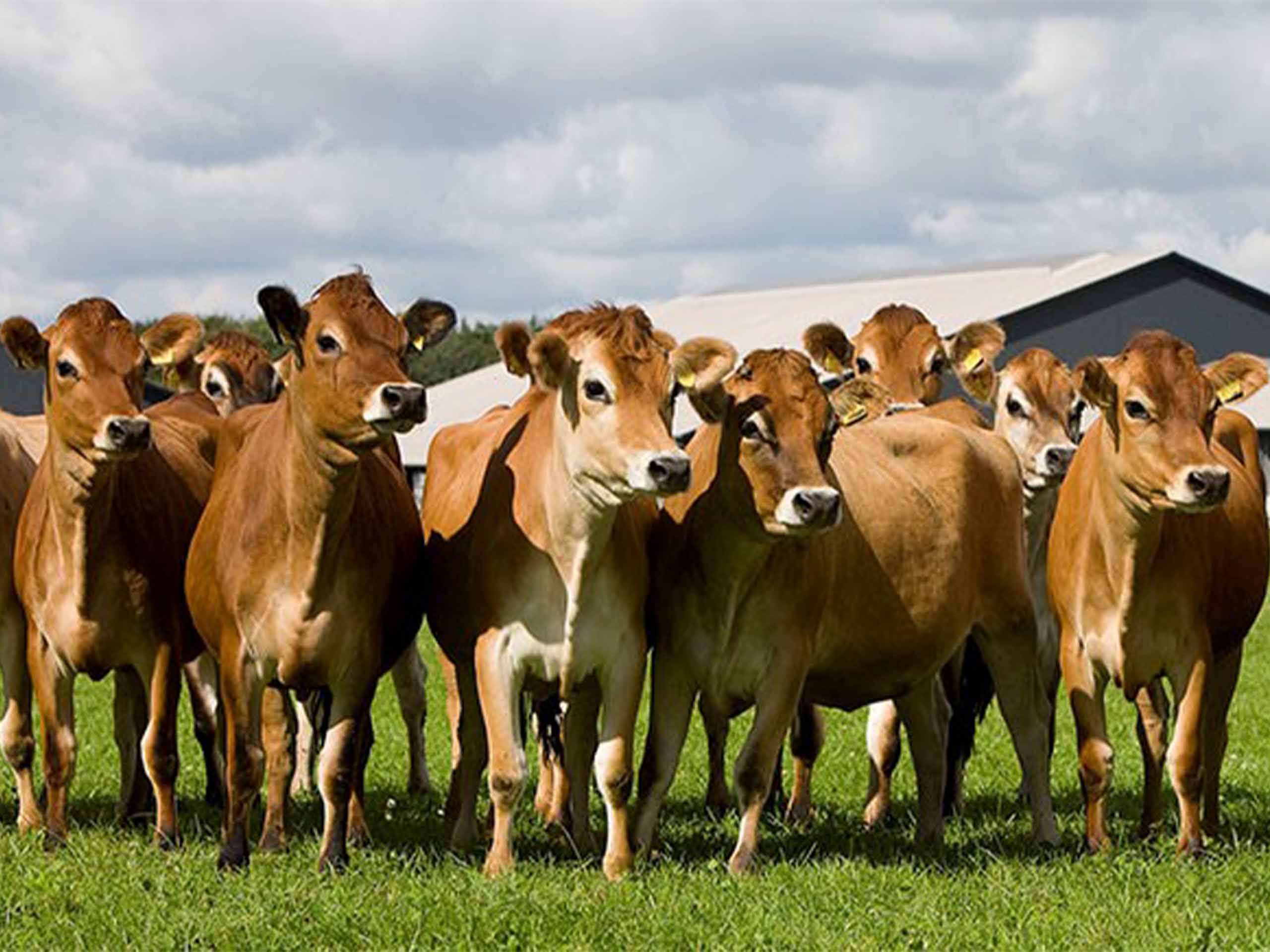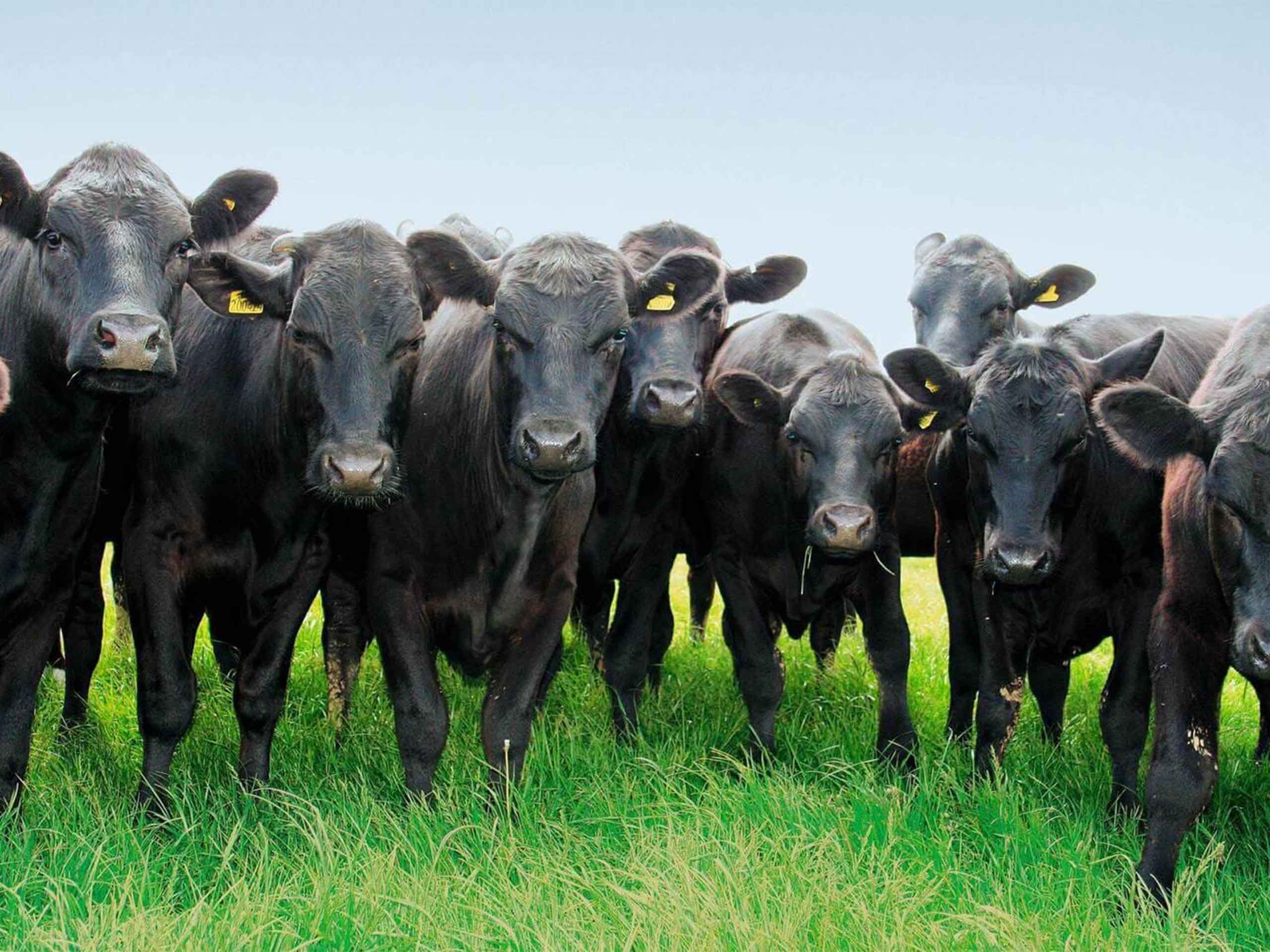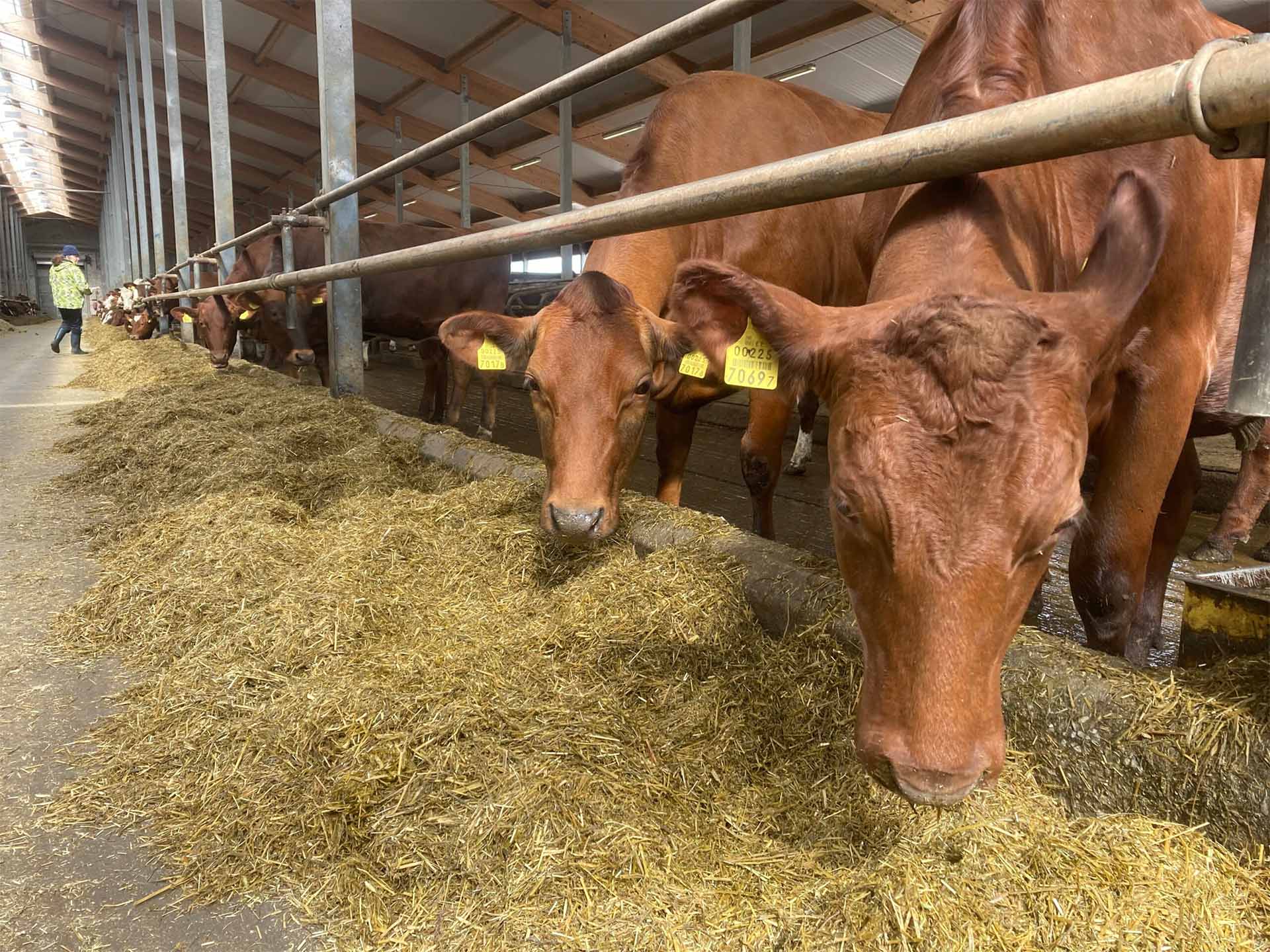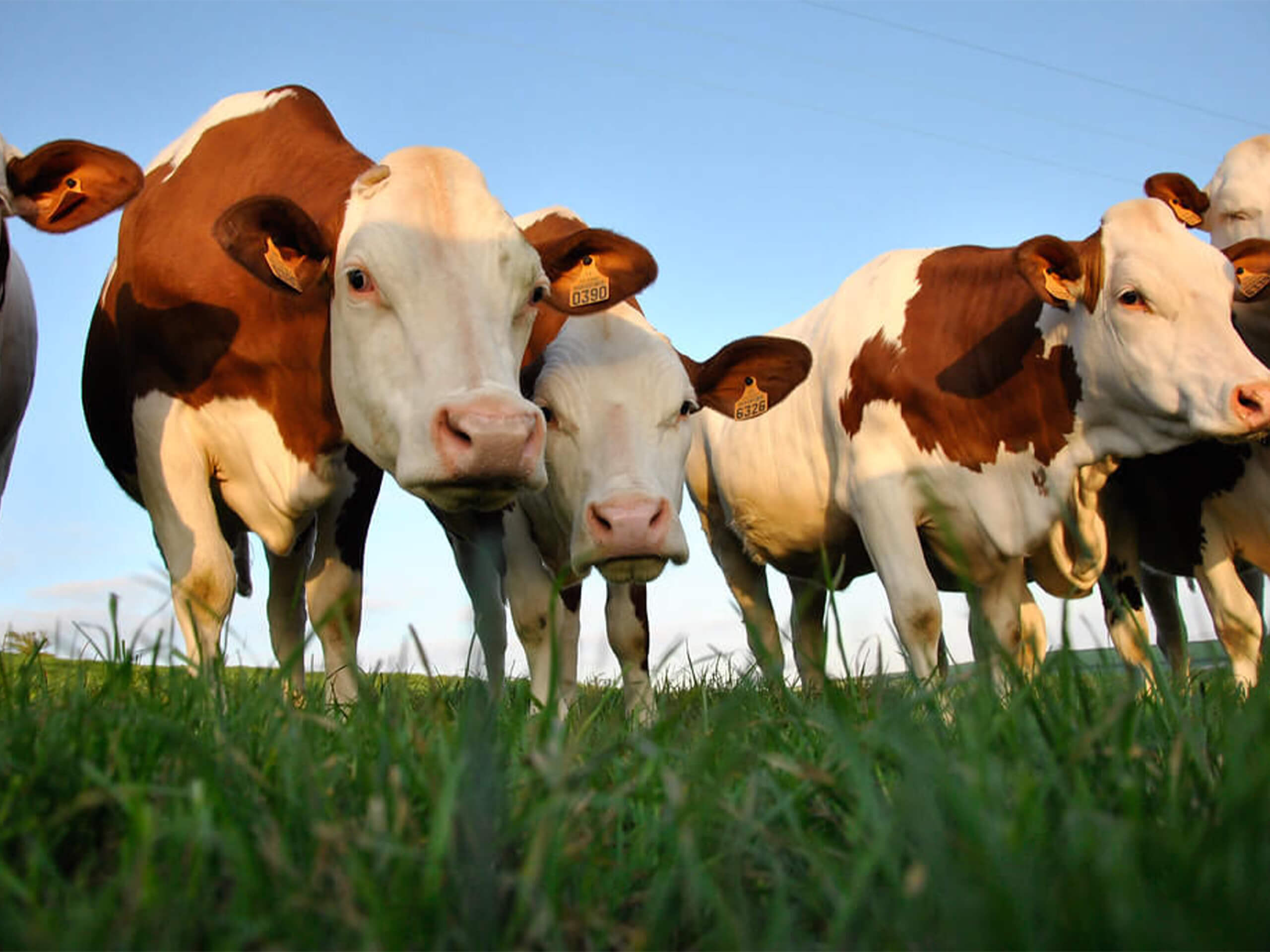BROWN SWISS
The Friesian, or ‘Holstein-Friesian’ breed, traces its roots back over 2,000 years. Known for its excellent dairying qualities even then, this breed has since been refined and selectively bred to achieve optimal milk production.
Holstein cows originated in northern Germany, while Friesians came from the Netherlands. Over time, these two breeds have been commonly crossbred, resulting in modern Friesians typically containing between ¼ and ¾ Holstein genetics, hence the familiar hyphenated name.
Friesian cattle are horned and were originally black-and-white or red-and-white. Today, however, the red variety is rare and primarily found in small numbers in the Netherlands. Modern Friesians have a white coat with distinct, sharply-defined black patches.
At full maturity, the average Friesian cow weighs around 580 kg, comparable in size and weight to pure Holsteins. Historical records show that some Friesian beef cattle reached finishing weights exceeding 1.3 tonnes!
Friesians are well-suited to Ireland’s variable climate, adapting easily to both continental seasonal shifts and the hotter climates of North America. They endure Ireland’s cold winters and occasional summer heatwaves without issue.
In northern Europe, Friesians are primarily bred for milk, while in southern Europe, the focus is more on beef production.
These cattle have impressive longevity, which is advantageous for farmers concerned about the costs of herd replacements.
Friesians also exhibit excellent conception rates, producing more calves per lifetime than many other breeds. Heifers should be bred only after reaching 13 months of age, and calves typically weigh around 45 kg at birth.
Male Friesian calves are highly valued, as they produce excellent beef yields despite the breed’s dairy heritage. Friesian bulls thrive in rapid, intensive beef production systems, making them ideal for farmers seeking a shorter finishing period. However, caution is essential when handling bulls of any breed! For more information, see our article on Bull Safety, which offers guidance on handling these strong animals.
Friesians are often praised for their high lactation rates. The average Friesian cow produces approximately 3.2 lactations in her lifetime, though some have achieved an astonishing 12 to 15 lactations from grazing on both upland and lowland pastures. Throughout her life, a typical Friesian will produce about 26,000 liters of milk, although it’s worth noting that the butterfat content is usually relatively low.
Herd protein levels for Friesians average around 3.4%, making them a desirable choice for many dairy farmers.

